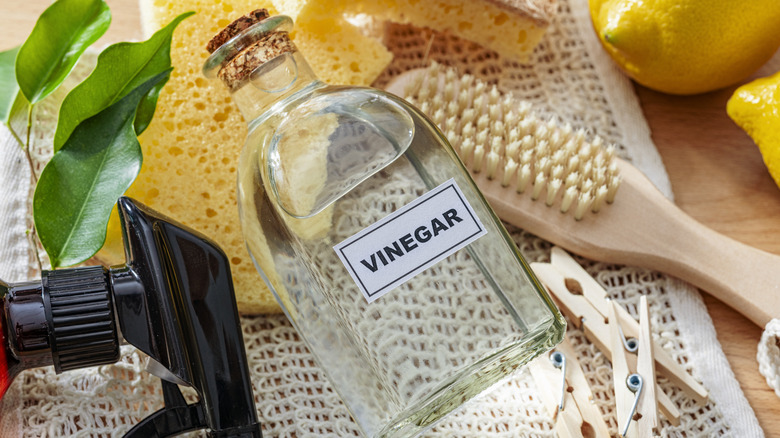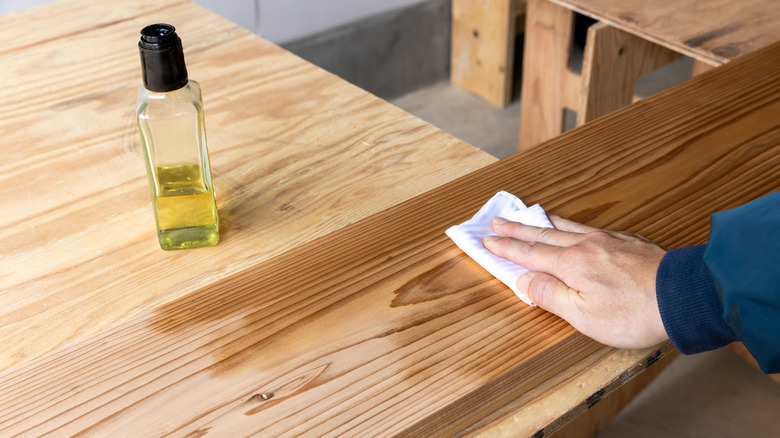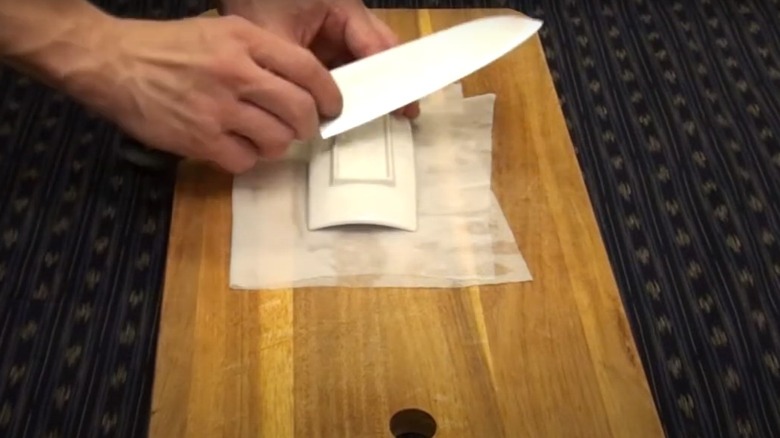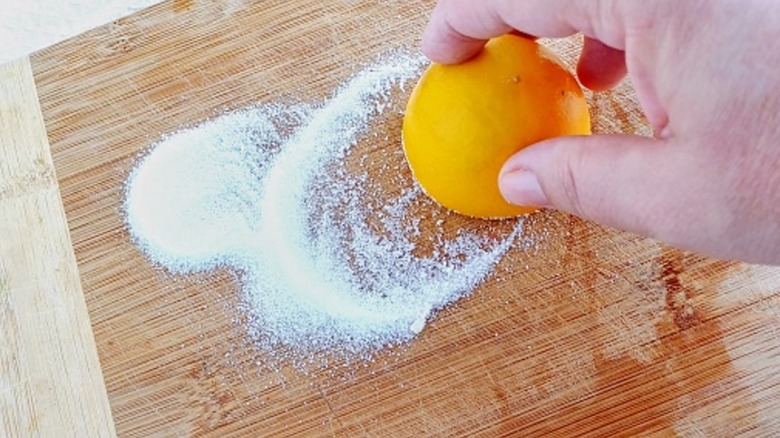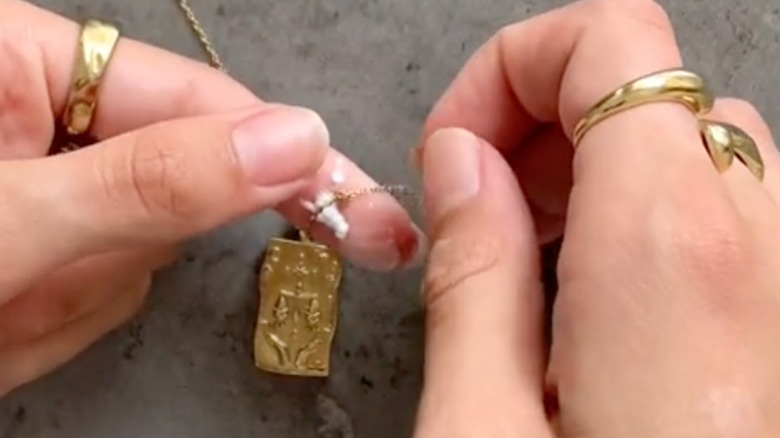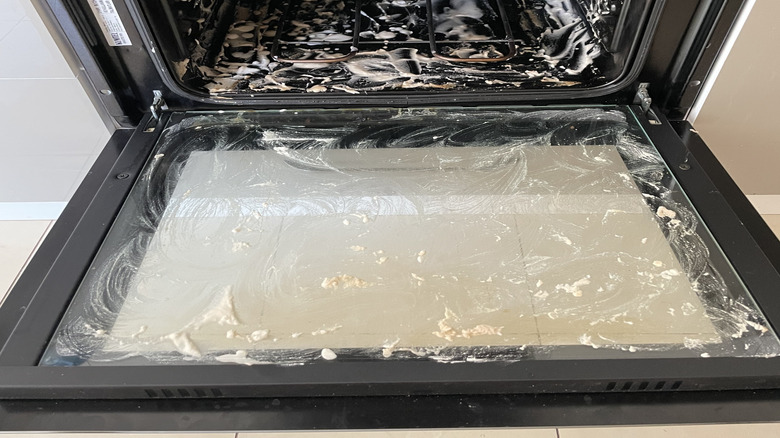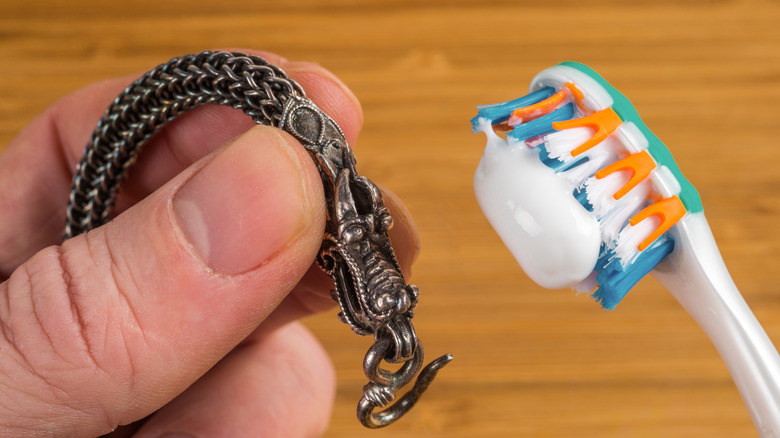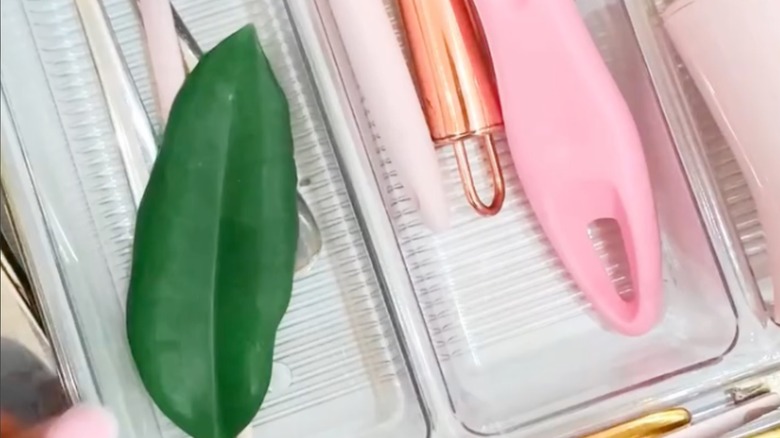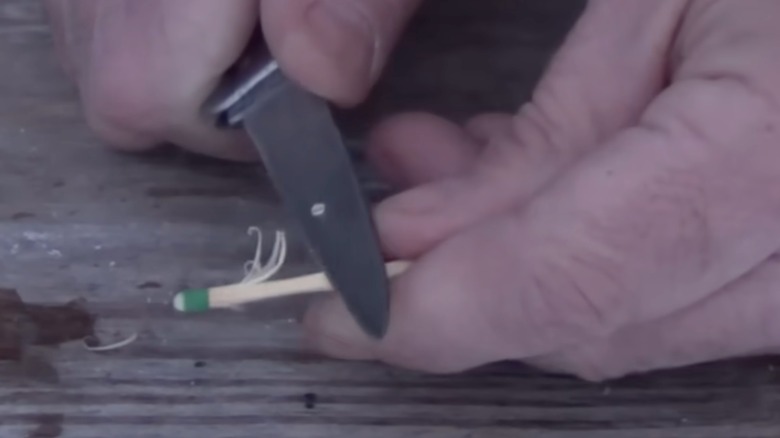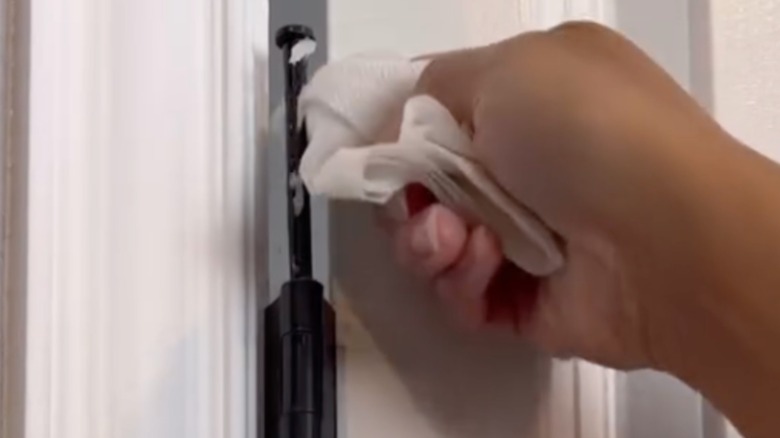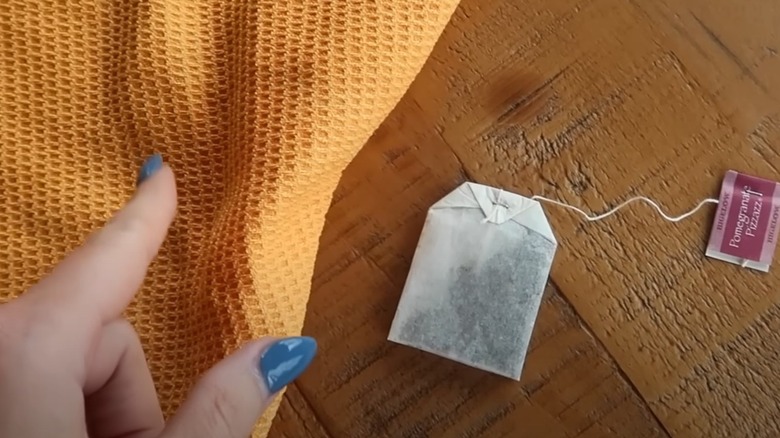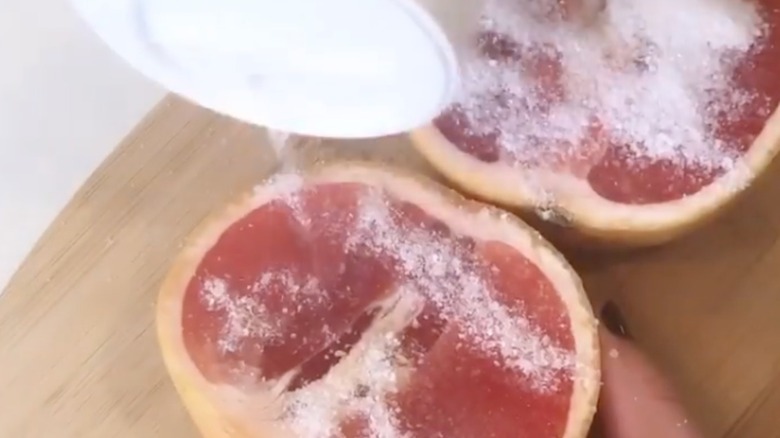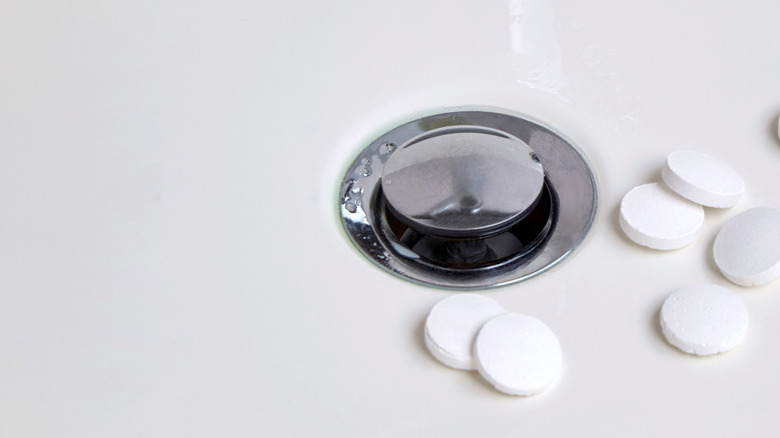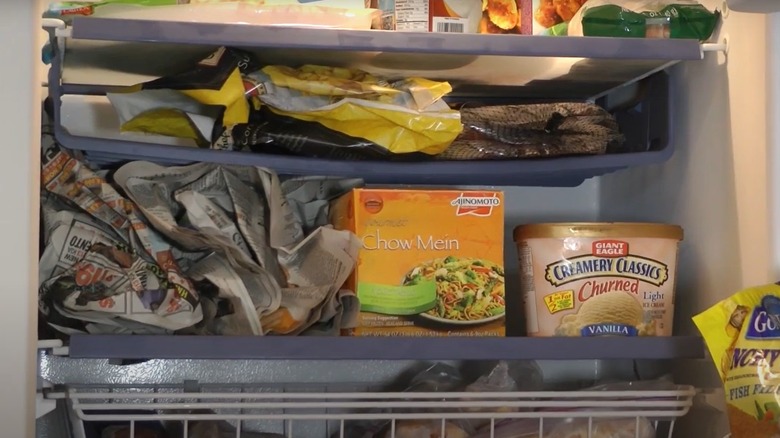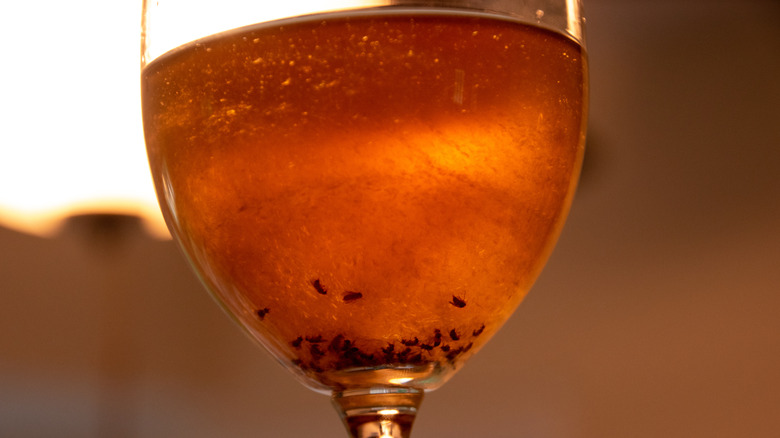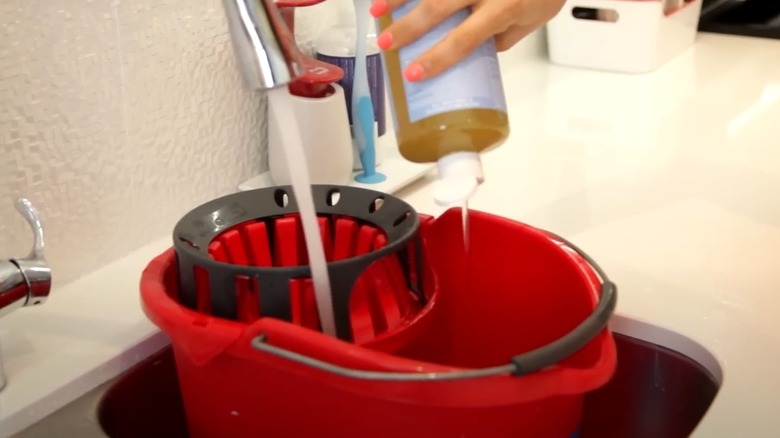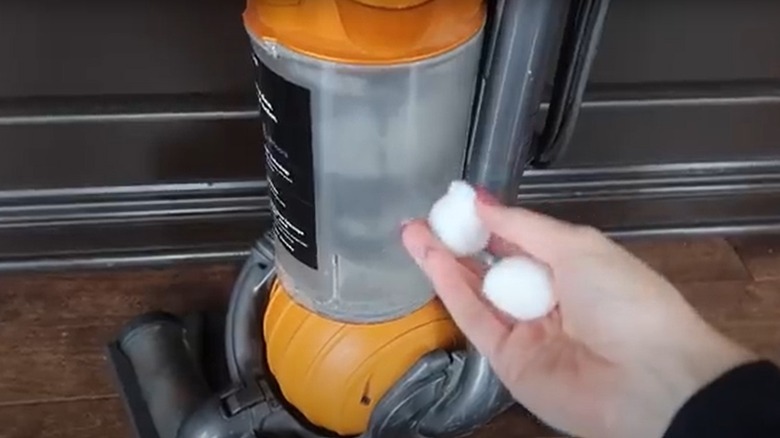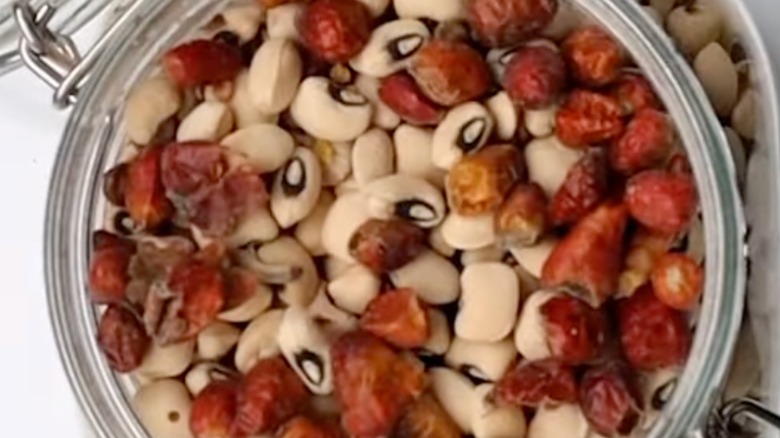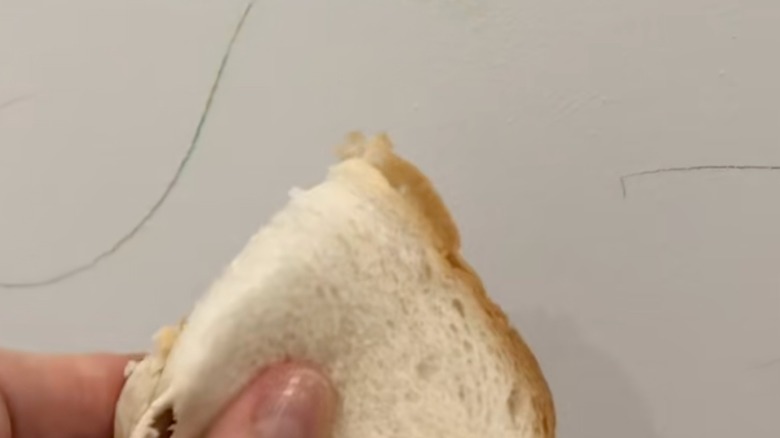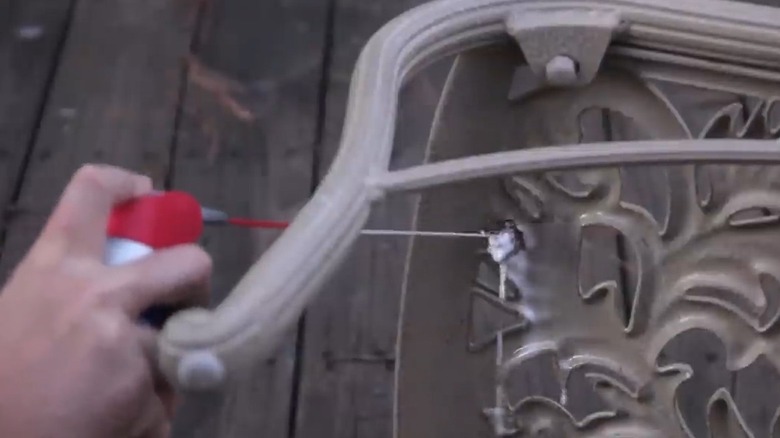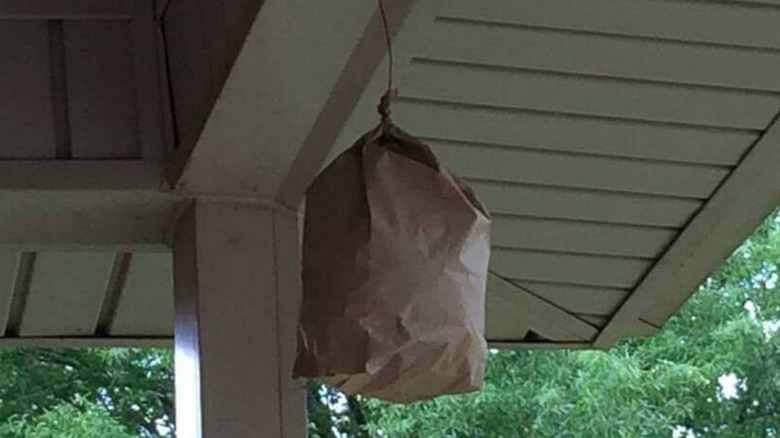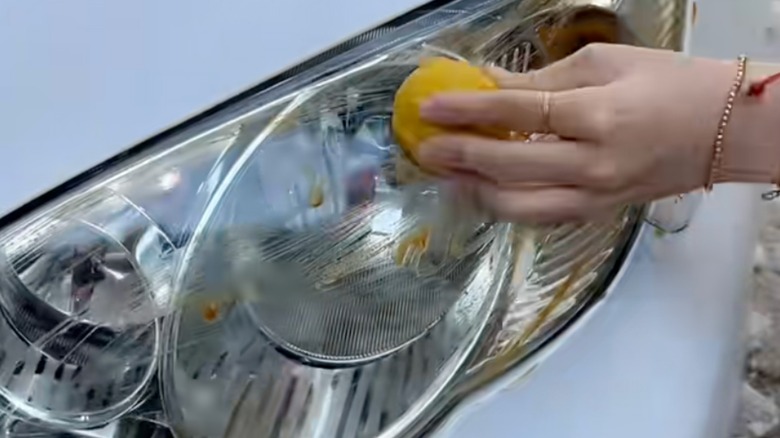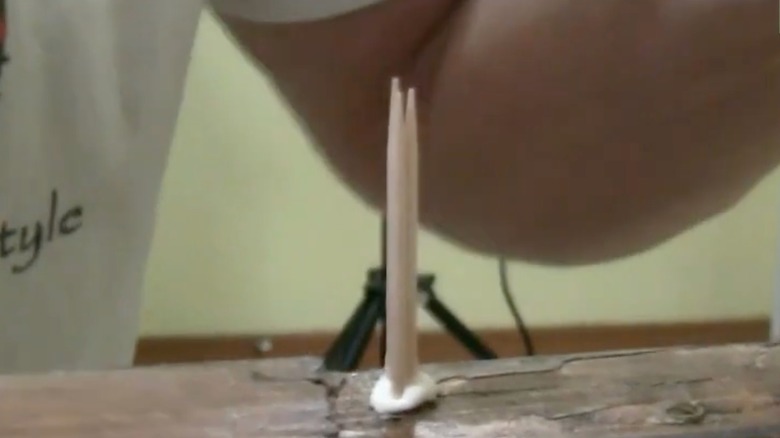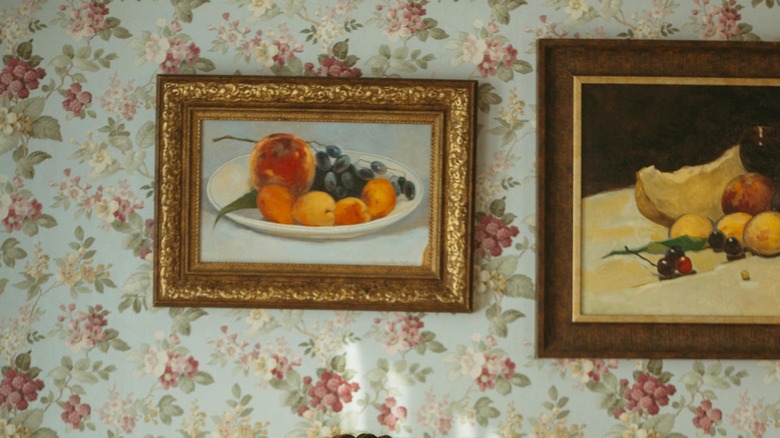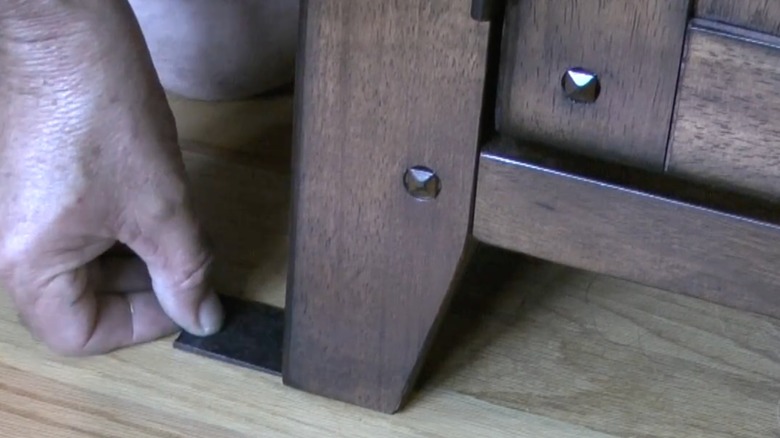25 Old-School Home Hacks We'll Use Forever — They're Just That Good
Ensuring that your home is in working order requires a lot of effort and, in many cases, a ton of supplies. Knowing how to do it all while also spending money on all the tools necessary to keep your home can be tedious. Instead, take a page from your grandparents' book and handle all of those home cleaning, improvement, and repair tasks by trying out some vintage solutions using things you may already have lying around the house. From using talcum powder to undo knots to tackling soap scum with grapefruit and salt, we've found 25 old-school home hacks that we plan to use forever.
Before we begin, it's important to know that most of these are more affordable, natural, or homeopathic options than buying a new product. Thus, they're a great way for many people to choose eco-friendly hacks over harsh chemicals for everyday cleaning and home improvement. However, that doesn't necessarily mean all these ideas will be ideal for your home. Always check that the products or methods are safe to use on your appliances and in your home, ensuring that the tricks and products used won't cause any damage. You can also test solutions on a small portion of the item before applying it fully.
Turn vinegar into the ultimate cleaner for just about everything
Vinegar can be a versatile cleaning tool if you know how to use it right and where it works best. From being a multi-purpose cleaner to an awesome deodorizer, this clear liquid can be used on its own or combined with other items like baking soda, lemon, water, and essential oil. Before mixing vinegar with anything, just remember to look up the combination and ensure it doesn't cause a harmful chemical reaction. While all vinegar has acidic properties that help with disinfecting, it is best to use a cleaning version.
Use olive oil on wood and leather
For years, people have been helping their wood and leather items shine with a surprising way to use olive oil in your home. For wood, you'll mix the oil and lemon juice, rubbing it into the wood to condition and protect it. When it comes to leather, all you need to do is just rub the oil on with a microfiber cloth to bring back its color and fix minor issues. If you're worried that it may alter the color of either piece, test a small hidden area.
Sharpen kitchen knives with a porcelain or ceramic plate
Before knife sharpeners became readily available, your grandma or gramps used a porcelain or ceramic plate instead. The unglazed bottom rim is abrasive enough to sharpen the knife. It can also be used to hone the tool, straightening the blade back in place. It's quite simple and takes only a few minutes. To help stop the plate from moving around, you can set a wet paper towel underneath. This hack comes in handy, especially if you don't have a sharpener hanging around or are cooking a meal in someone else's home.
Clean items in your home with salt
Follow your parents' lead and try out all the clever ways you should be using salt when cleaning your home. Salt is an abrasive, absorbent, and ideal mineral to pair with acidic components. Plus, most people have some already in their pantries. You can use the world's favorite seasoning for many different tasks, including clearing drains, removing stains, degreasing pans, scouring burnt bits off of cookware and dishes, and clearing rust.
Sprinkle talcum powder to help undo knots
Don't give up on those impossibly hard knots, as a sprinkling of talcum powder can untangle them. Using baby powder works on chained jewelry and matted pet fur, acting like a lubricant to loosen the knot. All you have to do is sprinkle some on top and massage out the problem areas. After you get the knot out, make sure to wipe away all the dust so it doesn't damage your piece over time. It's important to know that this hack can take some time, so don't rush the process.
Create a paste with baking soda for hard surface stains
A baking soda cleaning hack that is worth trying, which people have been using for decades, is making a paste. The solution is pretty simple to make: Mix baking soda with water, lemon juice, or vinegar. Rub it on the surfaces of items like ovens, countertops, microwaves, and kitchen tiles. Leave it on the zone for some minutes before scrubbing away grime and dirt. Due to its alkaline properties, this ingredient responds to the acids found in stains and spills.
Apply toothpaste to polish silver and jewelry
Head over to your bathroom sink and grab the toothpaste because it's a great way to polish silver and jewelry due to its abrasive ingredients, like baking soda or silica. Squeeze some on a microfiber cloth and gently rub on the silver piece until the grime and tarnish come off. For the best results, skip gel kinds and stick with plain versions with tartar control. Avoid using any toothpaste or other dental cleaning solutions that contain bleaching agents or other harsh ingredients. After you finish scrubbing, rinse the item with water and dry it.
Place bay leaves around your home to keep pests away
When no professional pest services were available, people would simply place bay leaves around different parts of their home to keep those intruders away. The scent this herb gives off repels insects and mice. There are many ways to use them around your house, like behind furniture or in closets. You can also crush the leaves to make a sachet or brew them for a deterrent spray. Have a garden? Grow bay leaves or distribute a few dried leaves around your plants, protecting them from pests.
Easily light a bright match on windy days
Lighters weren't always around, so people had a cool trick to easily light a match. Use this hack on especially windy days or when you're low on matchsticks. First, hold the matchstick and carefully use a pen knife to shave off some sections to create thin wood slivers just below the striking end. As you swipe the match head across the striking pad, the sparks will seamlessly catch the shavings on fire, making it hard for the wind to snuff out the light.
Use coconut oil as a lubricant to fix squeaky doors
Do you have a squeaky door that you can't stand? Not for much longer, because there are many ways to fix it, including a very natural way. When you don't have WD-40 on hand, coconut oil is an old trick that will still get the job done. Just remove the screw, spread the natural oil on it, and hammer it back in place. Add even more oil once installed, and then your door will be squeak-free. In a quick bind, spraying coconut oil cooking spray will work as well.
Clean cloudy mirrors and glass with black tea
Cleaning cloudy mirrors and glass has always been a struggle, but your mom may have the tip that can tremendously help — black tea. This type of beverage has tannic acid that helps remove grime and stains from reflective surfaces. However, you don't want to use a new bag; instead, you'll want to utilize used bags, putting them with water in a spray bottle. Apply as you clean, using a microfiber cloth to make the mirror shine once again.
Tackle soap scum with grapefruit and salt
Before there was a variety of soap scum tackling products, the grapefruit and salt combo was the secret to cleaning rings around your bathtub. When you combine the abrasive properties of salt and the citric acid of grapefruit, it helps break down hard-to-remove soap scum. All you need to do is cut one grapefruit in half and pour salt on top. Then, rub it all over the problem areas. You can use it on multiple items in your home, including your oven, leaving a pleasant and refreshing scent.
Drop an Alka-Seltzer tablet down a drain to unclog it
No need to buy those expensive drain cleaners filled with harsh chemicals when an Alka-Seltzer will come in clutch. It works because of the bicarbonate and citric acid that make up the tablet. When combined with water, they cause a fizzing reaction that helps remove minor clogs. All you need to do is drop the tablet down the drain with about a cup of vinegar. After about 10 to 15 minutes, pour hot water down the drain to clear the clog and remove any foul smells.
Place a newspaper in the refrigerator to remove foul smells
Get rid of smells in your refrigerator the old-school way by placing newspapers inside. The carbon in the paper absorbs foul odors over time. It's a simple hack: Scrunch up a piece of newspaper and place it on a plate. Add a few drops of cooking vanilla to the paper before putting it inside your refrigerator or freezer. You may need to continue this for a week or so until the stench dissipates. For a quick fix, spray the ball with water and leave it in the fridge for about 30 minutes.
Trap fruit flies with apple cider vinegar or wine
Listen when the older folks say to use apple cider vinegar or wine to get rid of fruit flies once and for all. These tiny pests are attracted to the smell of the vinegar and wine. However, add a couple of drops of dish soap to the bait to break the surface tension, trapping these flying bugs and causing them to drown. To ensure they don't get out, place plastic wrap on top and poke small holes for them to fly in. Then position it near smelly zones like sinks and trash.
Use Castile soap to mop floors
Have Castile soap at home? That's great news because you can use it to mop your floors. If you love eco-friendly, green cleaning, then you need to include this to your list because it is made from safe vegetable oils that help efficiently remove dirt and grime on vinyl, laminate, and unsealed hardwood floors. However, a little goes a long way with this product, so make sure to dilute it because it can leave streaks. Adding vinegar to the solution will also cut through the filmy residue that is sometimes left behind.
Cover odor in vacuums with an essential oil cotton ball
A clever use for cotton balls around the house is to add some essential oil to them and throw them in your vacuum to beat odors. As you vacuum, a lovely smell will leave the machine and spread throughout your home. What's great is that you don't have to remove them for disposal since they are already inside the machine's bag or container. Before you replace them, clean out the vessel for longer periods of refreshness. Some of the best scents to go with are lavender, lemon, peppermint, or cinnamon.
Place dried peppers in rice, beans, and flour containers to keep pests away
Do pests like weevils or cockroaches keep entering your flour, beans, or rice bags or containers? Keep them away with a vintage dried pepper trick. The pungent smell of the peppers keeps bugs away, especially when you are storing grains in mesh or jute bags. All you have to do is place a full dried pepper or two into the container, letting it do the work. Make sure to replace the hot pepper every six months.
Use stale bread to clean wallpaper
Believe it or not, an unexpected way to reuse leftover bread around the house is to use it for wallpaper cleaning. Sounds crazy, but turns out the gluten in white bread can be used to lift fingerprints, pencil marks, and grease off your wallpaper. All you need to do is rub the bread against the surface, letting the stain or mark soak into the bread. Once done, make sure to toss out that slice.
Spray WD-40 on wasps to kill and repel them
Target wasps around your home by spraying them with a favorite lubricant spray, WD-40. These oil-based sprays began popping up in stores in the late '50s, and once it is applied to the flying insects, they suffocate, dying on the spot. You can also spray this on nests to take care of the problem. WD-40 acts as a wasp repellent, too. Just remember not to get too close to the wasps or the fumes. Once the bugs die, sweep them up and dispose of them.
Crumple a paper bag and tie it outside to deter bees
When chilling on your back porch or sun room, you don't want bees to sneak in and bother you. So crumple up a brown paper bag and suspend it outside to resemble a hornet's nest. You'll want to position it higher up, where you typically would see a nesting site. You can also put multiple out for extra protection. Replace them once the bag gets too damaged or before cooler weather hits. Repeat the same process every bee season so you can thoroughly enjoy your outdoor living space.
Cut a lemon and clean your headlights
Clean cloudy headlights on your car before you head out with a cut lemon. This citrus fruit is packed full of acidic components that clear away grime and oxidation on these lights. All you need to do is squeeze some juice on a microfiber cloth, rubbing away all the dirt. Rinse and then dry. Just remember to wipe it all off so the lemon doesn't damage the car's paint. For more intense stains, you can also sprinkle baking soda on top of a lemon before rubbing it on the surface.
Use toothpicks dipped in glue to fix a loose hinge
Do you have wobbly doors with loose hinges because the holes for the hinge screws have gotten too big? Here's an affordable old-school tip — close the holes entirely with glue and toothpicks. First, remove the door from its hinges. Dip the toothpicks in glue and plug up the holes with them. After the glue dries, cut down the toothpicks and sand the now-level area. Next, screw back the hinges to the door. Now, every time you open and close the door, it will be tightly in place.
Hang nails in the center of flowers on floral wallpaper to hide holes
Floral wallpapers are back in style, but with that comes an old issue — holes in the wall. To stop anyone from seeing these small openings, an old hack was to hang frames and art in the center of a flower, seamlessly blending into the design. Then, when you take out the nail, the busy pattern in the middle of the flower disguises it, making it so that you don't have to replace the paper or fill in the holes.
Use a shim to level off items in your home
Unlevel objects and fixtures now get a handyman to come out and help. But back in the day, homeowners would use a shim to even things out, like cabinets, trim, furniture, and even toilets. While wood shims were more common, there are now other alternatives, like plastic and metal. Use wood for places that don't have a lot of moisture, like leveling a countertop that isn't flush against the wall, or a plastic version to lift a toilet or couch. In a tight fix, you can even use a coin.

